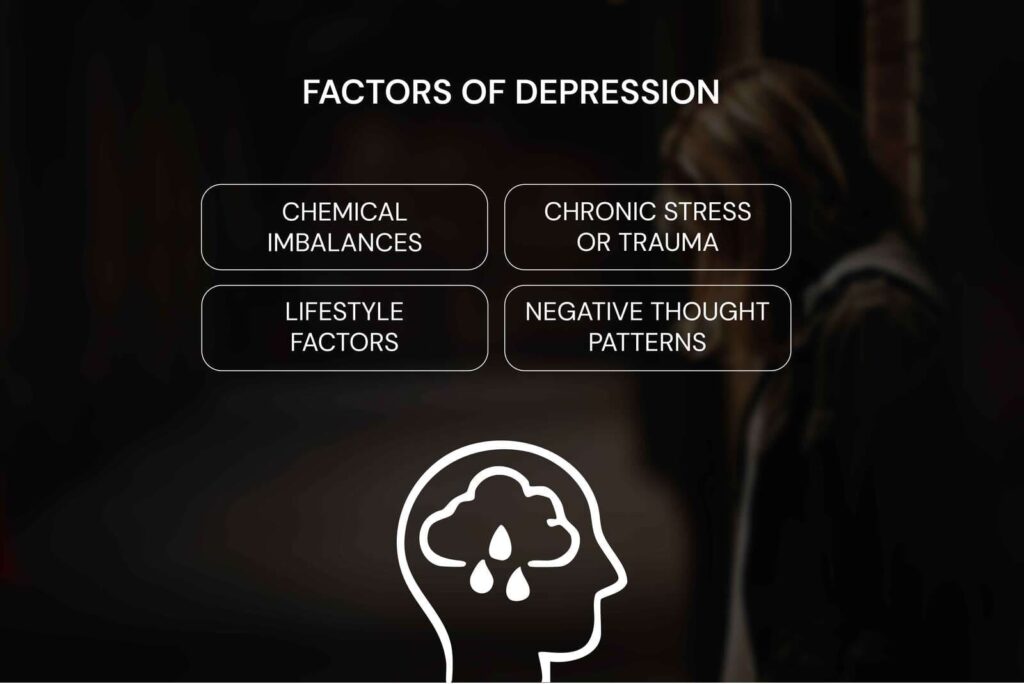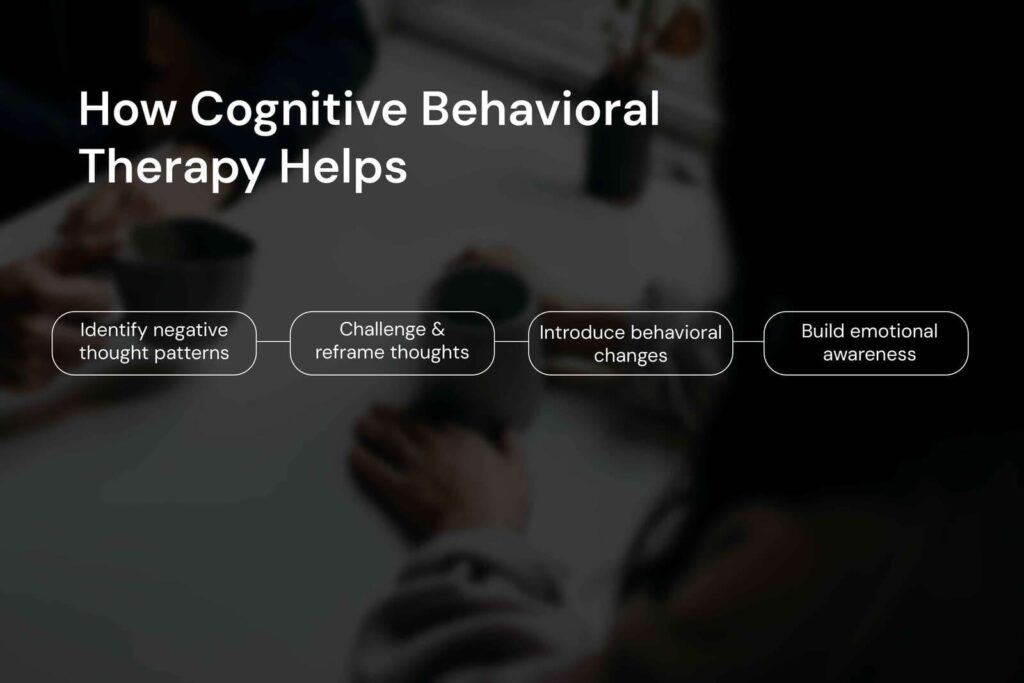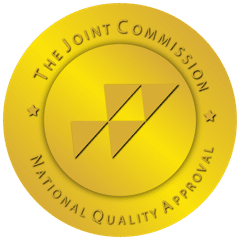Depression is a serious, common mental health condition that affects how you feel, think, and function. If you’re constantly asking yourself, “Why am I so depressed?”, you’re not alone, and you’re not weak. Depression often results from a combination of biological, psychological, and environmental factors. Fortunately, treatment options like Cognitive Behavioral Therapy (CBT) provide effective tools to manage symptoms and build long-term resilience.
What Causes Depression?
Depression doesn’t happen without reason. The question “Why am I so depressed?” often points to multiple underlying factors working together:

1. Chemical Imbalances
Depression is often linked to low levels of neurotransmitters such as serotonin, dopamine, and norepinephrine. These chemicals help regulate mood, sleep, and energy.
2. Chronic Stress or Trauma
Ongoing stress, from work, financial strain, or caregiving, can deplete your emotional resources. Traumatic experiences like abuse, neglect, or grief may also contribute to long-term depressive symptoms.
3. Negative Thought Patterns
Unhealthy thought loops, like self-criticism, catastrophizing, or hopelessness, can trigger and reinforce depression. These thoughts become habitual, making it harder to see a way out.
4. Lifestyle Factors
Poor sleep, lack of exercise, social isolation, and substance use can increase your vulnerability to depression. Small changes in behavior often make a big difference over time.
What Are the Signs of Depression?
Depression is more than sadness. It affects the entire body and mind. Common symptoms include:
- Persistent low mood or emptiness
- Loss of interest in hobbies or relationships
- Fatigue or lack of energy
- Difficulty concentrating
- Appetite or weight changes
- Sleep disturbances (too much or too little)
- Feelings of guilt, worthlessness, or helplessness
- Suicidal thoughts or urges
If you’ve experienced several of these symptoms most days for at least two weeks, it’s important to seek support. Depression is treatable, and the sooner it’s addressed, the more effective treatment tends to be.
Why CBT Works for Depression
Cognitive Behavioral Therapy (CBT) is one of the most research-supported treatments for depression. It works by helping you recognize and change unhelpful thoughts and behaviors that contribute to emotional distress.
CBT is based on a simple but powerful concept: how you think influences how you feel and behave. When you change the way you think, you can change the way you feel.
Here’s how CBT helps:
- Identifies negative thought patterns (“I’m a failure,” “Nothing will ever get better”)
- Challenges and reframes those thoughts (“I’ve made mistakes, but I’m learning and improving”)
- Introduces behavioral changes that support emotional healing, like goal-setting and activity scheduling
- Builds emotional awareness so you can respond, rather than react, to life’s challenges
In one study published by the American Journal of Psychiatry, patients who completed 12 weeks of CBT showed a 50% reduction in depressive symptoms compared to those who received no treatment.

What to Expect in a CBT Session
A CBT session is structured and goal-focused. You’ll work with a therapist to identify thought patterns, track emotions, and test out new coping strategies. Here’s what a typical session might involve:
- Reviewing your mood and key events from the past week
- Exploring thoughts that contributed to depressive episodes
- Learning to evaluate and reframe those thoughts
- Developing action steps (e.g., making a phone call you’ve been avoiding, going for a short walk)
- Practicing coping techniques for future triggers
Between sessions, you’ll likely complete short “homework” exercises to build awareness and practice new skills. Over time, this process rewires your brain to support more helpful thinking patterns.
When Should You Start CBT?
If you’ve asked yourself “Why am I so depressed?” more than once in recent weeks, now is the right time to take action. Starting CBT early can prevent symptoms from worsening and help you regain control.
Many people begin CBT through outpatient programs, individual therapy, or more structured options like residential recovery settings. At cognitive behavioral therapy programs, patients receive targeted support that addresses both mental health and co-occurring issues like substance use.
What Else Can Help Alongside CBT?
CBT is highly effective, but it works best when combined with healthy habits. These practices enhance your therapy work and create a stable emotional foundation:
- Exercise regularly (even 15 minutes of walking daily improves mood)
- Stick to a sleep schedule to reset your circadian rhythm
- Connect with others, even when you don’t feel like it
- Eat nourishing meals to fuel your brain and energy levels
- Limit alcohol and stimulants, which can worsen mood swings
Consistency is key. Progress may feel slow at times, but small changes add up.

How Many Emotions Are There?
Understanding your emotional range is essential to improving mental health. Emotional awareness is one of the foundational skills developed through CBT. Learn how recognizing your full spectrum of feelings can reduce depressive symptoms in How Many Emotions Are There? CBT’s Role in Emotional Awareness
How Is Anger Diagnosed in Therapy?
Depression is often linked to repressed or mismanaged anger. If you struggle with irritability or emotional outbursts, therapy can help uncover root causes. Explore how therapists identify and treat anger-related symptoms in How Is Anger Diagnosed in Therapy? CBT Approaches Explained






